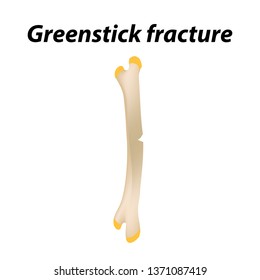The Connection Between Anxiety And Neck Discomfort: Practical Stress-Reduction Techniques
The Connection Between Anxiety And Neck Discomfort: Practical Stress-Reduction Techniques
Blog Article
Created By-Kenney Nelson
You're most likely no stranger to the rigidity in your neck that appears to approach when stress degrees increase. The link in between anxiety and neck discomfort is undeniable, yet have you ever thought about exactly how useful stress-reduction strategies could supply alleviation? Think of https://chiropractic-injury-clini84062.blogitright.com/30780187/a-fundamental-guide-to-chiropractic-care-adjustments-insights-on-anticipated-knowledge-and-functional-characteristics where you might break devoid of the grasp of stress-induced neck discomfort and discover a sense of calmness and comfort. Keep tuned to find straightforward yet effective approaches that could transform the method you take care of tension and minimize neck discomfort.
Recognizing the Stress-Neck Pain Cycle
Understanding the Stress-Neck Discomfort Cycle can offer beneficial insight into just how stress shows up literally in the body. When stress degrees climb, the muscles in your neck and shoulders tend to tense up as a natural response. This tension can bring about tightness, pain, and eventually pain in the neck area.
The physical symptoms of neck discomfort can then further aggravate tension levels, developing a vicious cycle. As tension continues to influence the body, the neck muscle mass can end up being much more strained, resulting in persistent discomfort and reduced flexibility.
Furthermore, anxiety can additionally add to inadequate posture, as people typically hunch their shoulders or crane their necks when feeling tense or overloaded. This poor stance can place extra pressure on the neck muscular tissues, causing increased discomfort and discomfort.
Efficient Stress-Reduction Techniques
To effectively manage the physical signs and symptoms of stress-induced neck pain and damage the cycle of pain, including tried and tested stress-reduction methods right into your everyday regimen is important.
One effective technique is deep breathing workouts. When you feel anxiety accumulating, take a moment to inhale deeply with your nose, hold for a couple of seconds, and then exhale slowly with your mouth. This straightforward method can help soothe your mind and loosen up tense muscles in your neck and shoulders.
One more valuable strategy is modern muscle mass relaxation. Beginning by tensing and afterwards launching each muscle team in your body, focusing on the experience of leisure as you release tension. This approach can help launch physical tension and enhance general leisure.
In addition, practicing mindfulness and reflection can be effective tools for decreasing stress. By concentrating on the here and now minute and letting go of bother with the past or future, you can relieve psychological tension that adds to neck discomfort. Incorporating severe back pain -reduction methods right into your everyday regimen can make a considerable difference in handling stress-induced neck pain.
Way Of Living Adjustments for Neck Discomfort Relief
Making way of life modifications can play a substantial function in easing neck pain and promoting total relief. One essential adjustment is keeping proper position throughout the day. Ensure your work area is ergonomically pleasant, with your computer display at eye level and your chair supporting your lower back. Incorporate regular breaks to extend and walk around, avoiding stiffness and tension buildup.
In addition, focus on routine exercise to reinforce your neck and top back muscles, decreasing the threat of strain. Keep moisturized and maintain a healthy and balanced diet to support ideal muscle mass feature and overall wellness. Execute stress-reduction techniques such as deep breathing, mindfulness, or yoga exercise to relieve stress that can add to neck pain.
Boost your sleep high quality by investing in an encouraging pillow and cushion, and develop a relaxing going to bed routine. By making these way of living modifications, you can proactively handle neck discomfort and enhance your quality of life.
Conclusion
In conclusion, by including useful stress-reduction strategies right into your day-to-day regimen, you can damage the cycle of stress-induced neck pain. Deep breathing, progressive muscle leisure, mindfulness methods, and meditation are effective ways to soothe the mind, loosen up neck muscles, and decrease general anxiety levels. Making small way of living changes can help ease pain, promote leisure, and boost your overall well-being. Bear in mind, dealing with your mental and physical health is vital to managing tension and neck discomfort.
